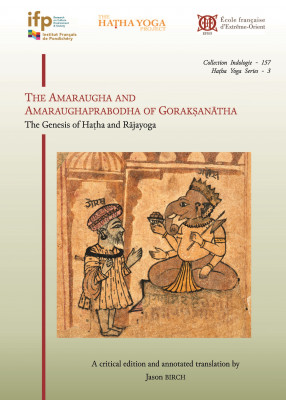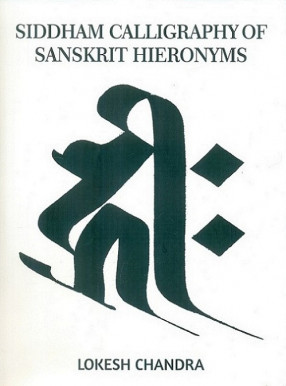FREE & QUICK WORLDWIDE SHIPPING ON $60+
TAKE 10% OFF YOUR ORDER | USE CODE: TAKE10

Book details
-
 xxxvi+493p., Notes; Bibliography; Index; 29cm.
xxxvi+493p., Notes; Bibliography; Index; 29cm.
-
 Hardcover
Hardcover
-
 English language
English language
-
 Centre for Studies in Civilizations
Centre for Studies in Civilizations
-
 01.01.2005
01.01.2005
-
 ISBN 10:
8187586206
ISBN 10:
8187586206
Related categories
History of Science, Philosophy and Culture in Indian Civilization: Self, Society and Science: Theoretical and Historical Perspectives (Volume XI, Part 2)
Synopsis
The volume of the Project of the History of Science, Philosophy and Culture in Indian civilization aim at discovering the main aspects of India’s heritage and present them in an interrelated way. These volumes, in spite of their unitary look, recognize the difference between the areas of material civilization and those of ideational culture. The Project is not being executed by a single group of thinkers who are methodologically uniform or ideologically identical in their commitments. In fact, contributions are made by different scholars with different ideological persuasions and methodological approaches. The Project is marked by what may be called ‘methodological pluralism’. In spite of its primarily historical character, this Project, both in its conceptualization and execution, has been shaped by scholars drawn from different disciplines. It is for the first time that an endeavour of such a unique and comprehensive character has been undertaken to study critically a major world civilization like India. Self, Society and Science, Theoretical and Historical perspectives is one of a set of four volumes purported to broach the basic themes of the subject, consciousness, Science, Society, Value and Yoga [conssavy]. This sub-project is a part and extension of the ongoing Project of History of Indian science, Philosophy and culture [PHISPC]. Science has been described both as abstract and concrete. Mathematical language, constructive laws make it abstract and concrete. Mathematical language, constructive orientation and the invisible university of scientific laws make it abstract. But when its dependence on human experience and practice is recalled, science is felt to be concrete and close to common sense. Science is social in a double sense. Not individual in his isolation can create science. He is influenced by the views of others, predecessors and contemporaries, and scientific truth-claims need to be attested at least of principle by all. Sociology of science is a valid form of knowledge. Without peer endorsement and acceptance no new scientific theory is recognized as truly scientific. Of course the validation of science is a more comprehensive affair than the mere socio-logical approval of it. In science, diverse information about the world are sough to be systematized in terms of laws. The attempted systematization of knowledge in science takes alternative forms. History and Philosophy of Science are replete with the examples of these alternatives. The Ptolemaic and Copernican models in astronomy, the Newtonian and Quantum Physics and among the most well-known examples of this point. Not only scientific communities but also individual scientists author these changing alternative models. Many philosophically inclined scientific systematization is the human self, psychological or pre-suppositional. The self enters the domain of science both in the context of its origination and also in that of its validation. The self has been explicated behaviourally, introspectively and transcendentally. All these interpretations of the self and their relation to the society and science have been discussed in the papers of this book. While some authors have highlighted historical perspectives, others paid their main attention to the theoretical ones.
-10%
Item available. Ships in 1-2 days.
























